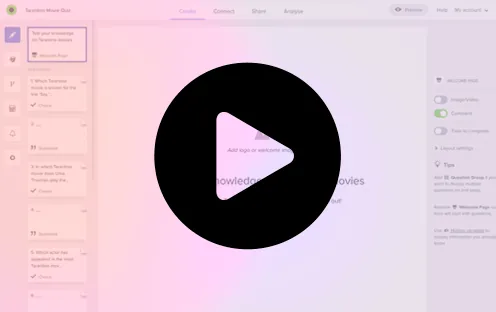
Depression is a serious health challenge, affecting an increasing number of people worldwide. However, there are innovative approaches, using technology to aid in detection and combat of this disease. Interankiety has developed a method of detecting burnout and depression using online surveys and artificial intelligence. But what can we do every day to protect our mental health?
What is depression?
Depression is a serious mental disorder that significantly impacts the daily functioning and quality of life of those affected by this condition. It is characterized by profound, chronic sadness, often accompanied by a sense of helplessness and a loss of interest and joy in life. Additionally, a person battling depression experiences a decrease in energy, resulting in general fatigue and a lack of motivation to undertake any actions. Concentration disorders, sleep problems - such as insomnia or hypersomnia, and significant changes in appetite, often leading to unhealthy weight loss or gain, are other typical symptoms of depression. The impact of depression on the ability to function in daily life is enormous and in extreme cases can lead to suicidal thoughts, which emphasizes the seriousness and severity of this disorder.
How to diagnose depression?
A depression diagnosis should be made by a professional, such as a psychiatrist or psychologist. Key diagnostic criteria include loss of interest in life, mood reduction for most days (for at least two weeks), and other symptoms such as changes in appetite, sleepiness or insomnia, fatigue, feelings of worthlessness, or suicidal thoughts.
How to cope with depression?
Find professional help: Consult with a psychiatrist or psychologist. The specialist may recommend psychopharmacological therapy, psychotherapy, or a combination of both.
Psychological therapy: Psychotherapy, especially cognitive-behavioral, can be an effective tool in coping with depression. It helps to identify and change harmful thought patterns into more constructive ones.
Pharmacotherapy: Antidepressants can be effective in alleviating depression symptoms. However, their use should be monitored by a doctor.
Physical activity: Regular physical activity has proven benefits for mental health. Physical exercises can improve mood, reduce stress, and increase energy.
Abraham Lincoln battled what we now understand as depression. He used writing as a form of therapy, pouring his deepest feelings into words.
How to help someone with depression?
Be empathetic: Listen without judging, show understanding and empathy. Sometimes just sharing feelings can help a person struggling with depression.
Encourage professional help: Help the person with depression understand that seeking professional help is important and not a sign of weakness.
Offer practical support: As far as possible, help with daily tasks, which for a person with depression may be harder to accomplish.
Be patient: The process of treating depression takes time. Be patient and support your loved one even in difficult moments.
Encourage healthy habits: Assist in encouraging physical activity, a healthy diet, and other healthy habits.
Depression among employees
In the context of burnout, depression can be a significant problem for employees, as these two issues often intersect. Work burnout, is a mental state resulting from chronic job-related stress. It involves feelings of exhaustion, lack of job satisfaction, and decreased job performance.

In the past year, we notice a worrying trend - a dramatic increase in the number of serious episodes of depression among people aged 18 to 25. Statistics show that more and more young people are struggling to maintain good mental health.
Analyzing the data, it is worth noting that factors such as the global pandemic, changes in social and economic life, and challenges related to education and work can be some of the key elements affecting the mental health of young adults. This increase emphasizes the urgent need to raise awareness about mental health issues among this age group and to provide appropriate social support and professional help. It is also a call to action for creating more balanced, supportive, and healthy environments that will help young people cope with the challenges they face.
Interconnections between work burnout and depression:
Increased risk of depression: People experiencing work burnout are more likely to develop depression. Continuous exposure to negative factors in the work environment can affect the professional sphere and overall mental health.
Feeling of helplessness: Employees affected by work burnout often feel helpless and lack control over their professional life. This, in turn, can lead to deep depression.
Mood changes: A consistently high level of work-related stress can lead to mood swings, and as a result, depression. People with work burnout may experience feelings of overwhelm, hopelessness, and apathy.
Social isolation: Work burnout can affect the employee’s social relationships. Social isolation is one of the characteristic symptoms of depression, and people with work burnout may withdraw from both professional and social life.
Ways to prevent depression among employees
Thanks to the use of advanced online surveys and artificial intelligence, the Responsly platform enables employers to monitor the mental condition of the team effectively. By systematically conducting surveys in the field of employee experience, the company has the opportunity to detect potential problems related to burnout or depression early. The automated data analysis process allows for quick identification of areas requiring attention, directing appropriate measures and support towards improving the mental condition of employees. Such action, therefore, constitutes a valuable contribution to creating healthier work environments where concern for the well-being of employees is paramount.






